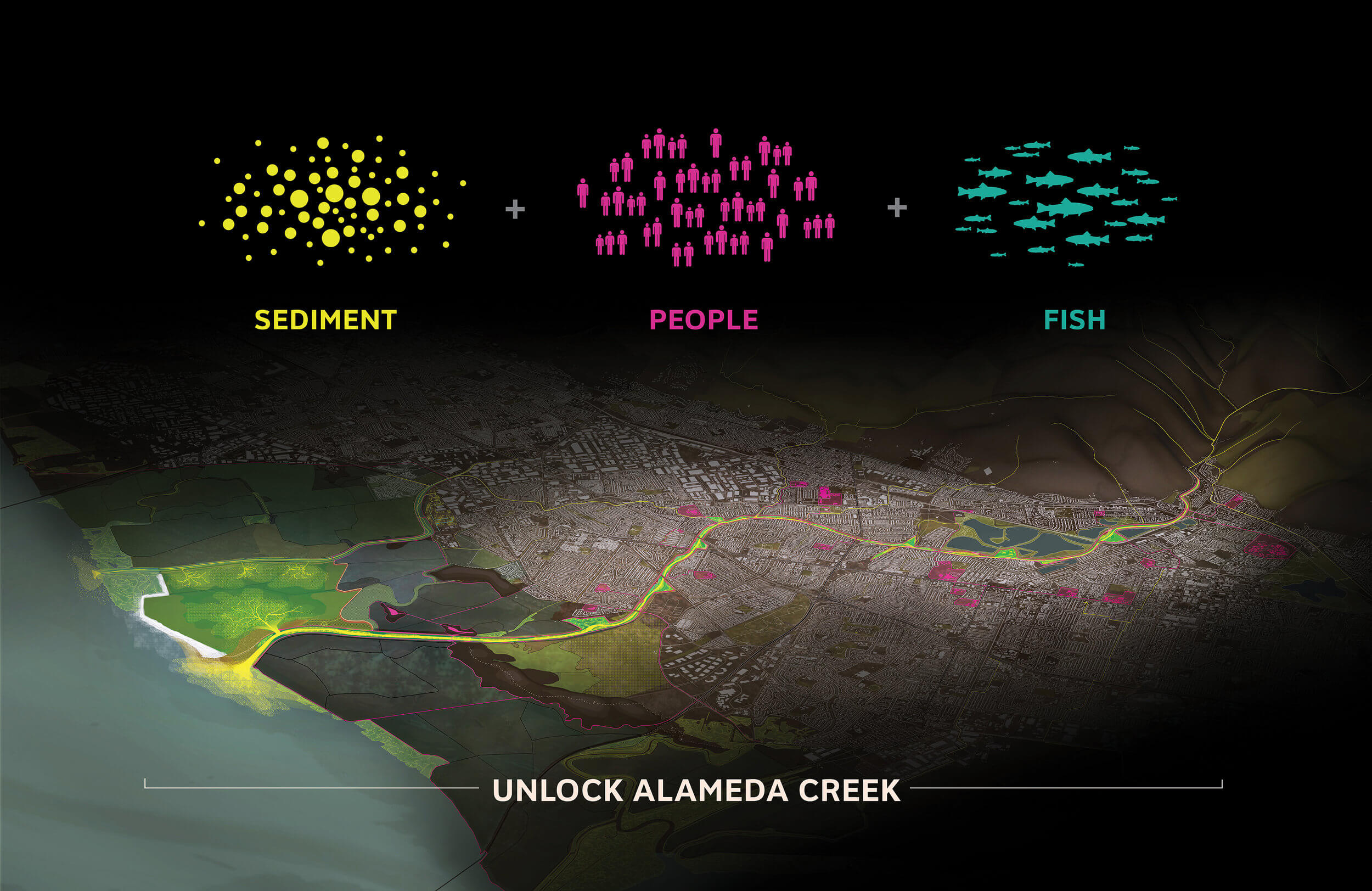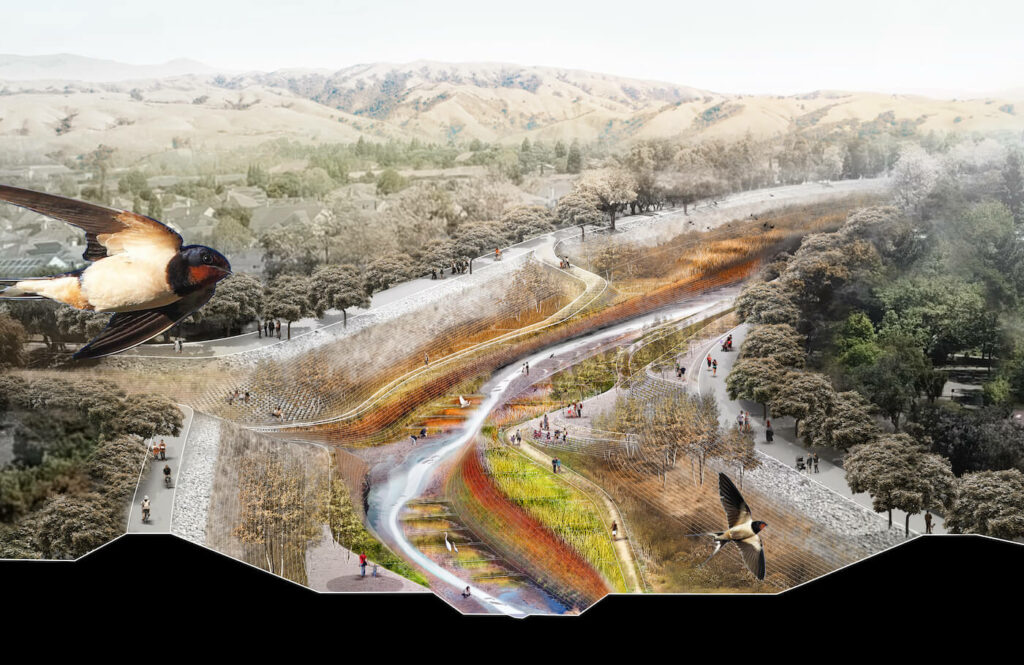Measure AA, intended to restore Bay Area wetlands, passed as an example of a truly regional ballot measure. Our team builds on this momentum and investment in ecological infrastructure to propose Unlock Alameda Creek, a tributary-based methodology for bayland nourishment. This project is implementable today and stitches together ongoing initiatives in the watershed identified by the Alameda County Flood Control and Water Conservation District, the South Bay Salt Pond Restoration Project, the East Bay Regional Park District, the Coastal Conservancy, and the Alameda Creek Alliance.
Alameda Creek is the beginning of a larger regional effort to reconsider and reinvest in tributaries as functional ecological systems. Public Sediment for Alameda Creek represents a paradigm shift in how we plan for climate change – rather than hardening the edge and ignoring the long-term consequences, we must recalibrate our relationship with sediment and water resources and invest today in living systems that will grow over time to adapt to sea level rise. Public Sediment for Alameda Creek is a proposal for unlocking and remaking broken systems, and we must apply this thinking at other scales– to the necklace of tributaries that feeds the Bay, to the Delta and the larger Rivers of California. Our risks are invisible yet they increase dramatically over time – we must invest now in functional tributaries that sustain living bayland infrastructure for the future.


 PUBLIC SEDIMENT is a multidisciplinary design team that views sediment as a core building block of resilience in San Francisco Bay. The team is led by SCAPE Landscape Architecture with Arcadis, the Dredge Research Collaborative, TS Studio, the UC Davis Department of Human Ecology and Design, Cy Keener, and the Architectural Ecologies Lab. PUBLIC SEDIMENT FOR ALAMEDA CREEK builds on and connects ongoing efforts in the region, including the work of the Alameda County Flood Control and Water Conservation District, the South Bay Salt Pond Restoration Project, the Alameda Creek Alliance, the East Bay Regional Park District, and many others.
PUBLIC SEDIMENT is a multidisciplinary design team that views sediment as a core building block of resilience in San Francisco Bay. The team is led by SCAPE Landscape Architecture with Arcadis, the Dredge Research Collaborative, TS Studio, the UC Davis Department of Human Ecology and Design, Cy Keener, and the Architectural Ecologies Lab. PUBLIC SEDIMENT FOR ALAMEDA CREEK builds on and connects ongoing efforts in the region, including the work of the Alameda County Flood Control and Water Conservation District, the South Bay Salt Pond Restoration Project, the Alameda Creek Alliance, the East Bay Regional Park District, and many others.

